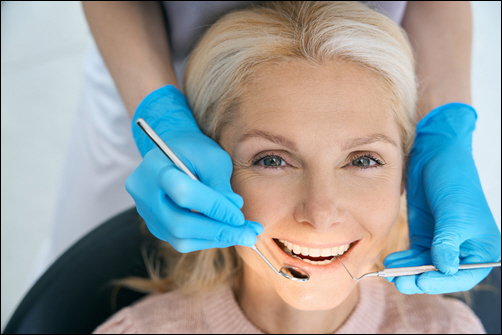
A healthy smile starts with preventive care. You protect your teeth and gums from future problems. Regular visits to a Moline, IL dentist are key. You can control plaque and tartar through cleanings. This reduces the risk of cavities and gum disease. Daily brushing and flossing help maintain your oral health. Eating nutritious foods also strengthens teeth, keeping them strong. When you prevent, you avoid costly treatments. Checkups also give you peace of mind. You get early warnings about potential issues, which means less pain later. You may be tempted to skip these appointments. However, consistency is important for a lifelong bright smile. Consider dental sealants for extra protection. These small steps boost your confidence and improve overall well-being. Effective preventive dentistry combines professional care and home practices. Now, make your oral health a priority. It is never too late to start new habits. Your smile is worth it.
Understanding Preventive Dentistry
Preventive dentistry focuses on maintaining your oral health to stop problems before they start. This includes regular checkups, cleanings, and good daily habits. The goal is to keep your teeth and gums healthy throughout your life. By catching issues early, you face fewer complications and less discomfort. Regular visits to a dentist are a cornerstone of this approach.
Key Components of Preventive Dentistry
- Regular Dental Checkups: Visit your dentist at least twice a year for cleanings and exams. These visits allow the dentist to spot problems early, reducing the need for invasive treatments.
- Proper Brushing and Flossing: Brush your teeth twice a day and floss daily. These practices remove plaque and food particles, protecting against decay and gum disease.
- Healthy Diet: Consuming a balanced diet with limited sugary snacks strengthens your teeth. Foods rich in calcium and vitamins support your oral health.
- Sealants and Fluoride Treatments: Ask your dentist about these treatments for added protection against cavities. They are particularly beneficial for children.
Benefits of Preventive Dentistry
Preventive dentistry offers many benefits. You save money by reducing the need for complex procedures. You also experience less pain and discomfort by addressing issues early. Your overall health improves when your mouth is healthy. A bright smile gives you confidence and enhances your appearance.
Comparison of Preventive and Reactive Dental Care
| Aspect | Preventive Dental Care | Reactive Dental Care |
|---|---|---|
| Focus | Prevention of issues | Treatment of existing problems |
| Frequency of Visits | Regular (e.g., twice a year) | As needed for issues |
| Cost | Lower in the long term | Higher due to complex treatments |
| Pain and Discomfort | Minimal | Often higher due to treatment |
How to Start Your Preventive Care Routine
Begin by scheduling a dental appointment for a thorough exam. Discuss personalized preventive care strategies with your dentist. Emphasize daily brushing and flossing. Limit sugary foods and beverages. Consider using mouthwash to further reduce the risk of cavities. These simple steps fit easily into your routine, ensuring your smile stays bright.
The Importance of Professional Guidance
A dentist provides guidance tailored to your needs. They offer tips on proper brushing techniques and recommend specific products. Some dentists offer fluoride treatments that strengthen your enamel. Dental professionals are trained to spot issues you might miss. Therefore, their role is crucial in maintaining your oral health.
Read more about preventive dentistry recommendations from the Centers for Disease Control and Prevention.
Conclusion
A commitment to preventive dentistry ensures a lifetime of smiles. Regular care helps your teeth and gums stay healthy. Early detection saves you time and money. The benefits go beyond oral health, improving your overall well-being. Start today by visiting your dentist and maintaining good habits. Your future self will thank you for it.